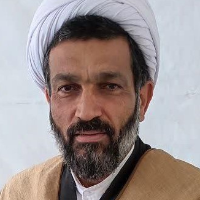A Look at the Interpretation of Nasīʾ with the Help of Calendrology
Author(s):
Article Type:
Research/Original Article (دارای رتبه معتبر)
Abstract:
Understanding the meaning and strong message of Quranic verses depends on understanding the words and terms used in it. One of these terms that is an ignorant observer; It is a tradition that the Qur'an has declared invalid. It shows a review of interpretative sources and vocabulary; The truth and process of this concept are in many uncertainties for Muslim Quran scholars. With the aim of filling this research gap, relying on the knowledge of calendrology and descriptive analytical method, this research tries to discover the hidden angles of this outdated Jāhīli tradition. For this purpose, in addition to interpretative-lexical investigations, we have noted the leaping and using calculations and tables, how and according to what goals they used They used the "solar-lunar calendar" which sometimes led to thirteen months of the year and the shifting of the forbidden months in such a way that every three years, two or three years of Dhul-Ḥijjah were replaced again. He was coming back. We have also tried to analyze the reason for banning the Quran according to the goals and consequences of this tradition.
Keywords:
Qur'an , Nasīʾ , triple calendars , solar-lunar , Lentils , Ḥajj , Hijri lunar
Language:
Persian
Published:
Journal of Quran and Hadith Historical Studies, Volume:28 Issue: 3, 2023
Pages:
138 to 157
https://www.magiran.com/p2555538
سامانه نویسندگان
مقالات دیگری از این نویسنده (گان)
-
An interpretive analysis of verse 16 of Nesa with a critical approach focused on the context
Mahbubeh Mousaeipour *
Journal of Comparative Interpretation Studies, -
A Study of the Verses of Asking Leave and Answeringthe Doubts about Hijab
*, Ghasem Sadeghpur
Journal of The Holy Quran And Islamic Texts, -
The stages of the progress of Islam in the prophetic era in Medina with an emphasis on verse 29 of Surah Fatah
Mahbubeh Mousaeipour *, Ghasem Sadegh Poor, Ali Mohammad Mirjalili
Quranic Studies and Islamic Culture,




